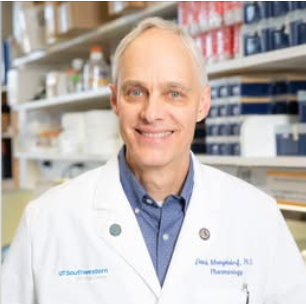Remembering Professor David Mangelsdorf: Visionary Scientist, Mentor, and Cherished Friend Dies at 67
DALLAS, TX — The global scientific and academic community is mourning the heartbreaking loss of Professor David Mangelsdorf, who passed away prematurely at the age of 67. A man of brilliant intellect, profound curiosity, and boundless kindness, Professor Mangelsdorf was more than a scientist—he was a beloved teacher, a trusted mentor, and a cherished friend to many around the world.
On August 4, 2025, the news of his passing sent shockwaves through universities, research institutions, and the hearts of countless colleagues and students who had the privilege of knowing him. Professor Mangelsdorf was a leading figure in molecular biology, best known for his groundbreaking work in nuclear receptor biology and metabolism, which has influenced decades of medical research and therapeutic advances.
Born in 1958, David Mangelsdorf’s passion for science began early and only grew more vibrant with time. His mother introduced him to science books when he was a child, and by the time he reached high school, his path was already forming. After earning his Ph.D. in biochemistry, he went on to achieve extraordinary feats in academia and research, including holding the prestigious Alvin and Marilyn Flower Chair in Biomedical Science and serving as Chair of Pharmacology at UT Southwestern Medical Center.
He was widely celebrated for his work on “orphan” nuclear receptors, a previously poorly understood group of proteins that regulate essential functions in the body such as metabolism, inflammation, and circadian rhythms. His discoveries, especially in collaboration with longtime research partner Dr. Steven Kliewer, changed the landscape of molecular pharmacology and opened the door to new treatments for diseases like diabetes, obesity, and cancer.
But to those who knew him personally, the loss runs deeper than academic accomplishments.
“He was the most influential attending physician I worked with during my residency,” one former student wrote. “Whether he knew it or not, he shaped the way I care for patients—and the way I think about what it means to be a good doctor and a good human.”
As a mentor, he was known for his patience, wisdom, and unwavering support. He made time to teach, to listen, and to encourage. Whether you were a junior undergraduate with a million questions or a seasoned colleague seeking insight, David treated everyone with respect and generosity.
Outside the lab, David had a brilliant and wide-ranging mind. He loved to engage in deep conversations—not just about science, but also about philosophy, religion, and the human experience. Friends often described him as a person whose mind was constantly at work, and yet whose presence was calm, non-judgmental, and always constructive.
He was also deeply rooted in his faith and community, a proud member of Journey Church, and a devoted part of their Dream Team. His Christian faith informed his compassion, his commitment to service, and his optimism even during personal trials—including his battle with cancer, which he faced with remarkable strength and grace.
Over the course of his career, Professor Mangelsdorf received numerous honors, including being named “Best in Medicine” by the American Health Council, and serving on various prestigious committees such as the Code Blue Committee and the Critical Care Committee at University Hospitals. He was affiliated with the Society of Critical Care Medicine, American College of Chest Physicians, and the American College of Osteopathic Emergency Physicians.
He is survived by his family, many friends, former students, and a global network of scientists who admired him. His legacy lives on not just in the research he pioneered, but in the lives he touched so deeply.
A memorial service celebrating his life and achievements is expected to be announced by UT Southwestern Medical Center and Journey Church in the coming days.
In the words of those who loved him:
“David was more than just a brilliant scientist. He was a good man. I’ll miss our talks—about science, yes, but also about life, about belief, and about laughter. Have a safe trip, my friend.”
Rest in peace, Professor David Mangelsdorf.
You changed the world through your science, but more importantly, through your heart. Your memory will remain a guiding light to all who knew you.

